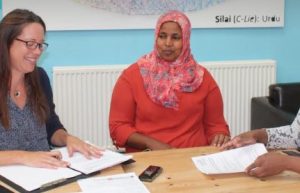Working with the Bristol Somali community to improve outcomes for children with autism
Related content
Autism Independence and NIHR
Inside, outside and in-between
.
Autism report targets Somali community
by Ella Rhodes
British Psychological Society "Putting autism centre stage".
Ella Rhodes reports on a community project and art/science collaboration.
“It was like walking without knowing where I was going”: autism in the Bristol Somali community findings published
How can I understand autism from a Somali perspective?
Some information and top tips, focussed on Autism from a Somali Perspective.
